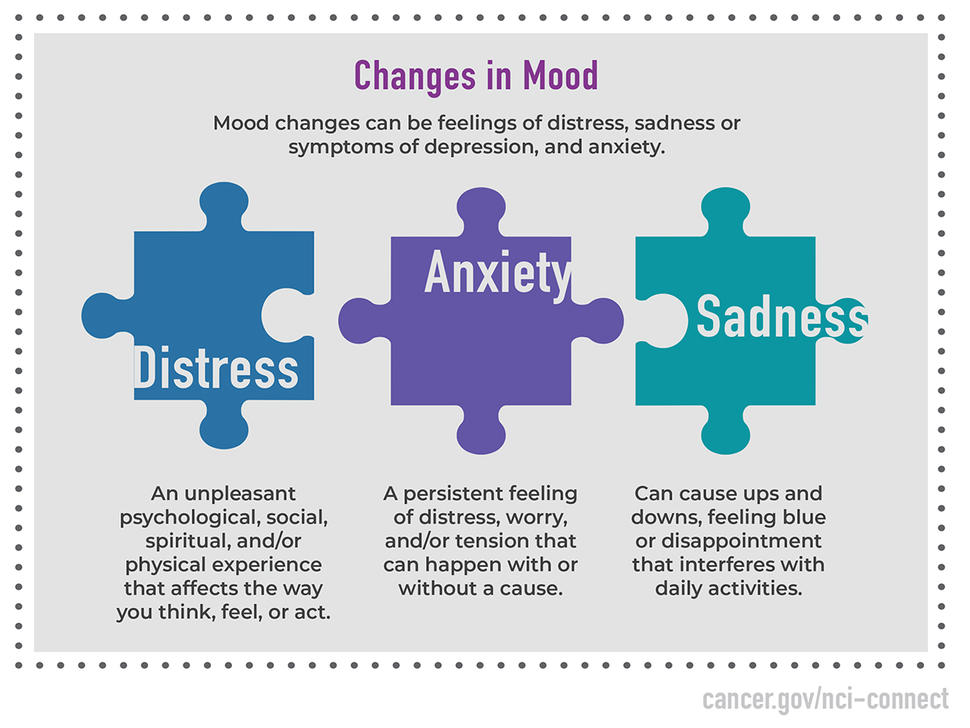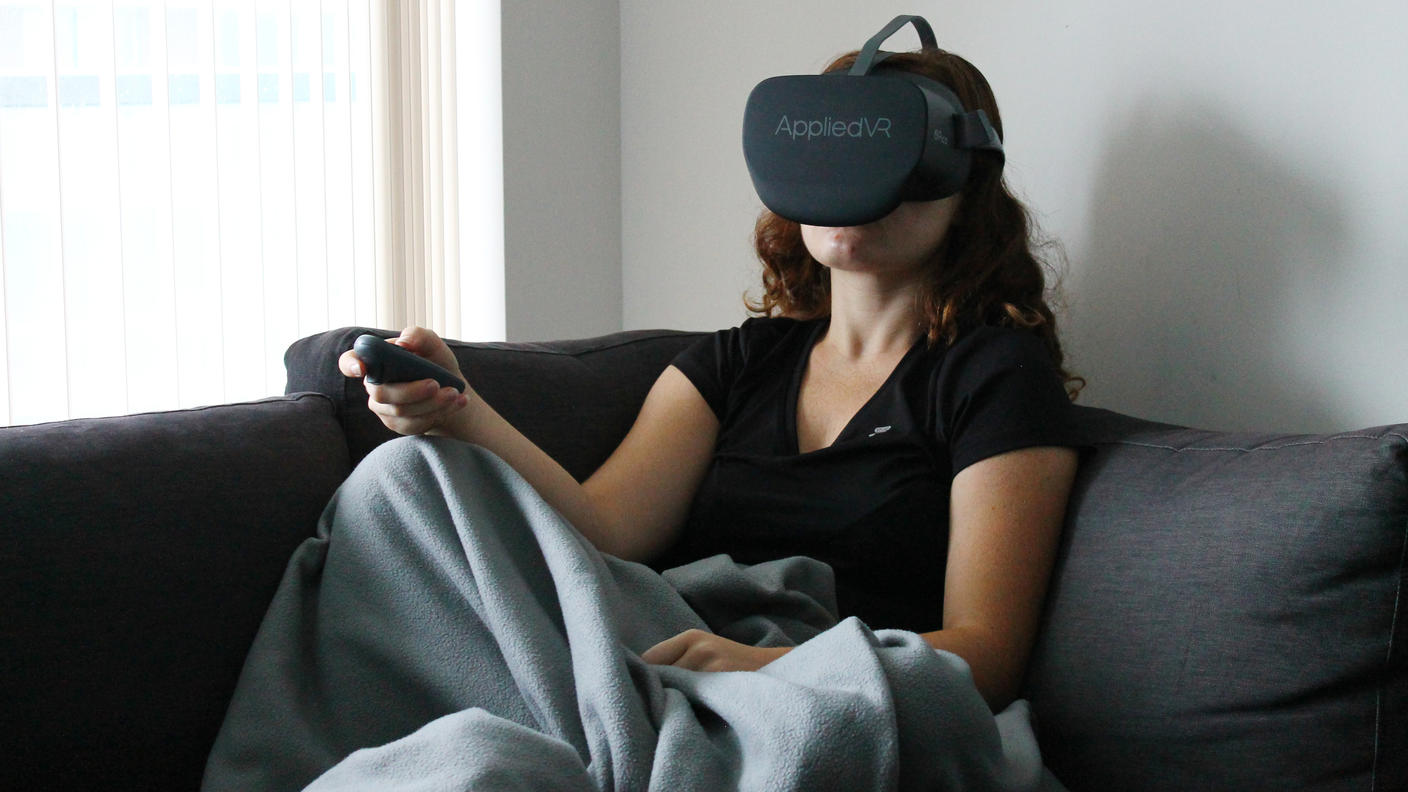What Is Mood Disturbance?
A brain or spine tumor diagnosis can cause a variety of changes in emotions and mood. Mood disturbance can involve feelings of distress or sadness, or symptoms of depression and anxiety.
Distress
Distress is an unpleasant psychological, social, spiritual, and/or physical experience that affects the way you think, feel, or act. Distress is a normal feeling during cancer care, but it may make it harder to cope.
Distress may include the following symptoms:
- Feeling sad, fearful, worried, angry, or helpless
- Changes in sleep, eating habits, or social life
- Changes in your ability to take care of yourself and/or others
- Questioning your faith, your purpose, or the meaning of life
- Frequent thoughts about illness or death
- Difficulty concentrating
Anxiety
Anxiety is a persistent feeling of distress, worry, and/or tension that can happen with or without a cause.
Anxiety may include the following symptoms:
- Shortness of breath, sweating, headache, or muscle tension
- Negative thoughts and feelings, such as excessive worrying, feeling afraid, irritable, or “on edge”
- Difficulty concentrating
- Changes in sleep
- Becoming tired easily
Sadness
Sadness is a change in your mood that involves feeling “blue” or disappointed, which can interfere with daily activities.
Sadness may include the following symptoms:
- Feeling depressed, hopeless, empty, guilty, or worthless
- Lack of interest or pleasure in most activities
- Lack of energy
- Changes in sleep pattern, sexual drive, or appetite
- Difficulty concentrating
- Thoughts of self-harm or death
Ways to Manage Mood Disturbance
There are many ways you can manage and cope with mood disturbance:
- Keep a daily log of your mood changes and symptoms in a journal or the My STORITM app and look for patterns.
- Consider bringing a supportive family member or friend to your health care visits. Talk with your doctor about any questions you have—understanding your disease and treatment plan can help reduce uncertainty.
- Create a routine that includes a variety of relaxation techniques, such as muscle relaxation, massage, prayer, mindfulness, meditation, or listening to calming music.
- Check in with yourself often. Concentrate on positive thoughts and emotions. Try reading an inspirational or funny book, writing positive messages, or thinking about three good things that happened each day.
- Focus on your beliefs and values. Find activities that prioritize what matters to you, such as spending time with loved ones, volunteering, practicing your faith, or meditating.
- If your distress, anxiety, or depression is persistent, ask your doctor about starting counseling, cognitive behavioral therapy, music therapy, or guided imagery.
- Some medications may cause anxiety or depression as a side effect. Ask your doctor if there are other medications you should take to manage these side effects.
- Explore self-care activities that can help you cope with and improve your mood, including diet, exercise, or sleep:
- Work with your health care provider to develop a nutrition plan. Alcohol use may increase feelings of depression, anxiety, or distress. Caffeine use may increase feelings of anxiety.
- Exercise to help manage mood disturbances and improve the way you feel. Yoga in particular may help relieve anxiety symptoms.
- Try doing things that make you feel like yourself again, such as writing in a journal or setting goals.
When to Report Mood Disturbance
Discuss any concerns with your doctor. Share the symptoms you’ve logged and your self-care activities.
- Ask your doctor when and how to report your symptoms.
- Report if your mood disturbance gets worse, is severe (e.g., lack of interest in things you usually enjoy or difficulty completing daily activities), or does not improve with your self-care activities.
- Ask your doctor what you should do in case of an emergency and when your mood disturbance should be reported immediately.


